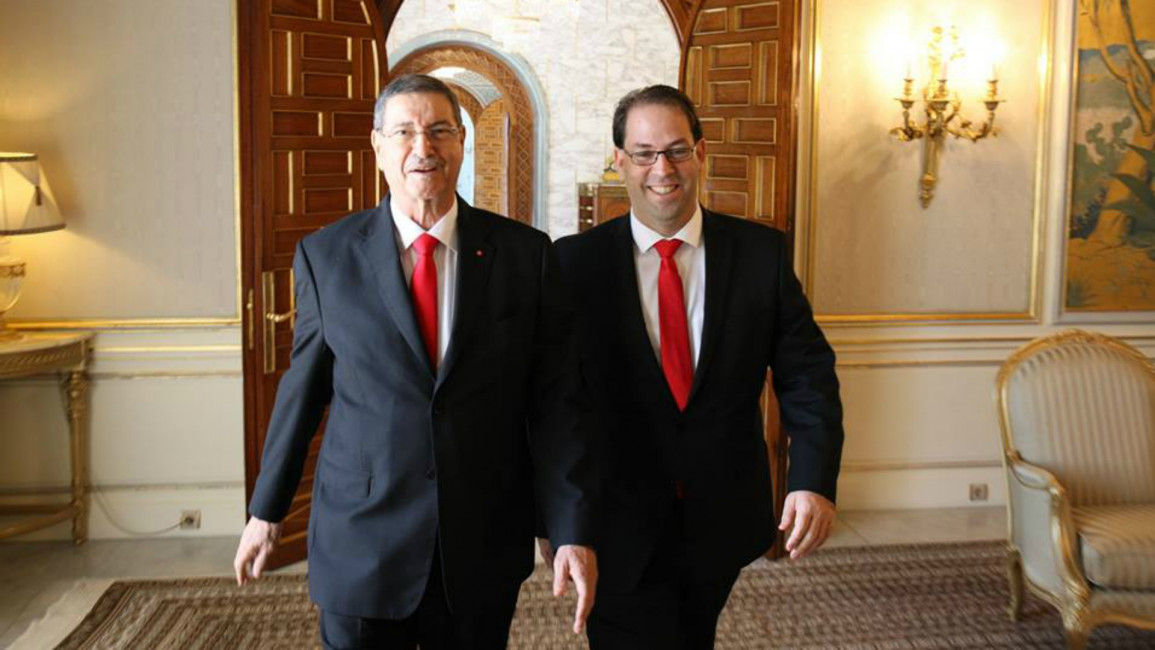
Tunisia's political shake-up: Welcome change or legitimacy undermined?
President of the Tunisian Republic, Beji Caid Essebsi unexpectedly introduced a new political initiative last month, aimed at ensuring the smooth transition of power from the current government, to a new interim government of independent statesmen and politicians.
This follows serious economic warnings from both the Tunisian Central Bank and the World Bank. While the Tunisian dinar dropped dramatically last June to one dinar for US$0.456, the government seemed paralysed to make effective public investment, given not only the limited public budget, but also the increasing foreign debt.
Beji Caid Essebsi's sudden introduction of a political initiative that attempts to look for a way out of this socio-economic plight appears to point to two important facts.
First, Beji Caid Essebsi undoubtedly acknowledges the total failure of his former party Nidaa Tounis, along with Ennhadha Islamist party in meeting popular expectations of a more modern economic model and a more dynamic foreign investment.
Despite political successes through national reconciliation and a peaceful coexistence, neither the current secular-Islamist coalition, nor the former troika government succeeded in bringing about any tangible economic change. Even Beji Caid Essebsi himself in an interview with Tunisia's national TV station talked of "a failure that has to be fixed as soon as possible before it is too late". The question we are faced with now, is why an independent government?
The Tunisian transition to democracy is by no means similar to any other, and its unique status in the MENA region means it is often glorified by the Tunisian political elite and admired by the International community.
Its most distinctive feature is the exceptional role of civil society in consolidating democracy, with a significant contribution from the Tunisian Quartet (led by UGTT, the largest Trade Union in Tunisia) which was recently awarded Peace Nobel Prize.
The role of civil society in Tunisia is rooted in the early beginnings of the uprising in 2011, and in the political crisis of 2013, which pushed Tunisian democracy to the edge. It was then able to play a significant role in the post Habib Essid era.
 |
Neither the current secular-Islamist coalition, nor the former troika government succeeded in bringing about any tangible economic change |  |
Beji Caid Essebsi stated that "it is time for everyone to participate in the next government including civil society organisations". This unforeseen shift from a constructive supervision to a concrete participation may be a turning point in the history of political theory.
Last month, the "Carthage Agreement" was signed by all major political parties, including the Tunisian Quartet. This agreement illustrates the president's political vision of politics in Tunisia, stipulating the Quartet's participation in the future appointed government as a prerequisite of the success of Tunisian democratic transition.
If the Quartet accepts such an offer, these crucial changes will reshape the political scene. First, the constant social unrest may be quelled thanks to UGTT's large platform and its ability to influence and control its supporters.
This step will be necessary if Tunisia wants to re-establish a strong relationship with foreign investors, who pulled out of the country over security issues and unstable social environment.
Second, with the exception of a few political parties such as the Popular Front and other leftist groups, the future government will have relatively wide political support, and thus the capacity to comfortably implement long and short term economic strategies. It will aim to rebuild the Tunisian economy on more stable and sustained development.
 |
If Chahed fails to justify his choices, a veto against his government will be undoubtedly raised |  |
One month after the parliamentary veto against Habib Essid and the appointment of Youssef Chahed - a young politician and a promising leader - as a new PM, the formation of the new government has been announced. This follows negotiations with almost all Tunisian political actors, and must now be officially approved by the parliament.
Despite Chahed's efforts to form a governmental team whose members represent the different political orientations, winning the confidence of the parliament and, further down the line, of Tunisians is not as simple as it seems.
First, Chahed's government will have to deal with the problem of legitimacy, by providing concrete explanations in parliament, given the surprising appointment of two leftist ministers whose party has only 16 seats in the parliament, compared to Ennahdha, with 66 seats and Nidaa Tounis with 89. Second, Chahed will have to justify the unexpected appointment of some ministers whose expertise is unlikely to be up to the task.
Third, the new PM has appointed a few ministers who previously served in Habib Essid's government, calling into question the effectiveness of the president's initiative.
If Chahed fails to justify his choices, a veto against his government will be undoubtedly raised, and yet a new round of negotiations will begin.
Rafaa Chehoudi is an MA student majoring in International Relations at the Institute of Social Sciences in Tunisia and a member in the International Association for Political Science Students.
Join the conversation by tweeting us: @the_newarab
Opinions expressed in this article remain those of the author and do not necessarily represent those of The New Arab, its editorial board or staff.


![President Pezeshkian has denounced Israel's attacks on Lebanon [Getty]](/sites/default/files/styles/image_684x385/public/2173482924.jpeg?h=a5f2f23a&itok=q3evVtko)



 Follow the Middle East's top stories in English at The New Arab on Google News
Follow the Middle East's top stories in English at The New Arab on Google News


